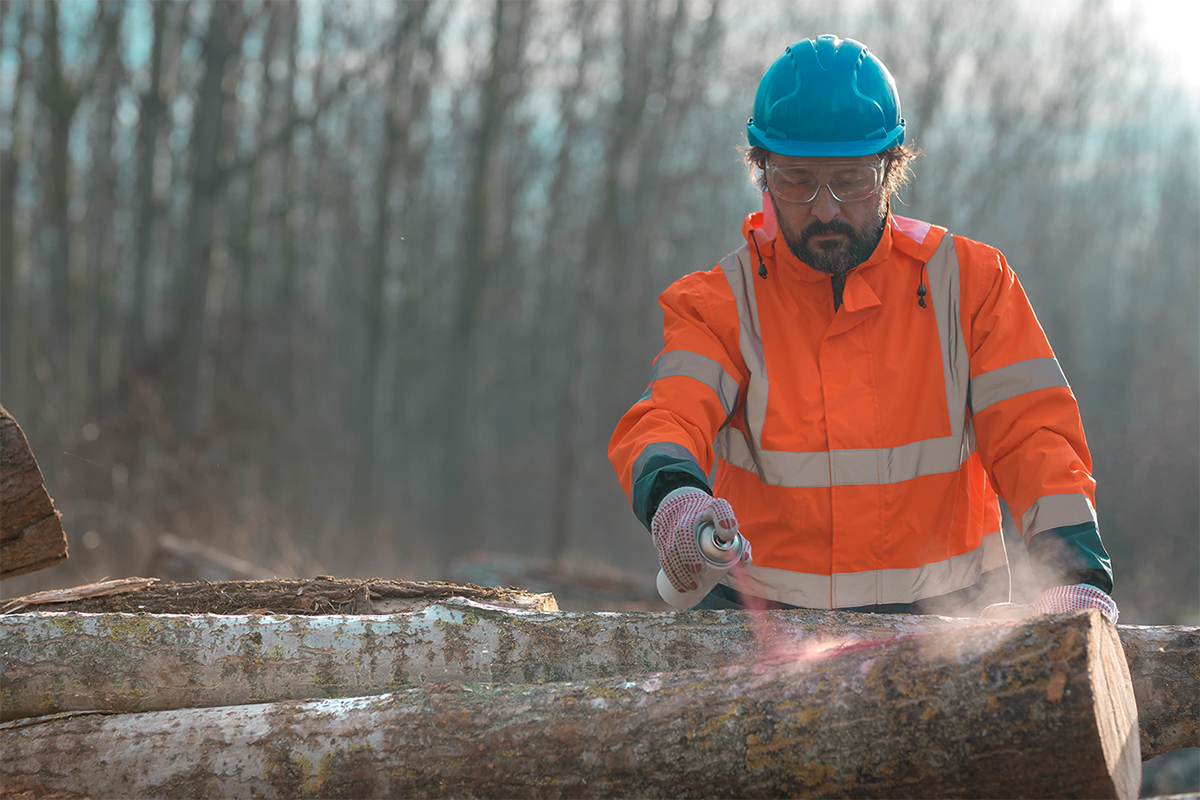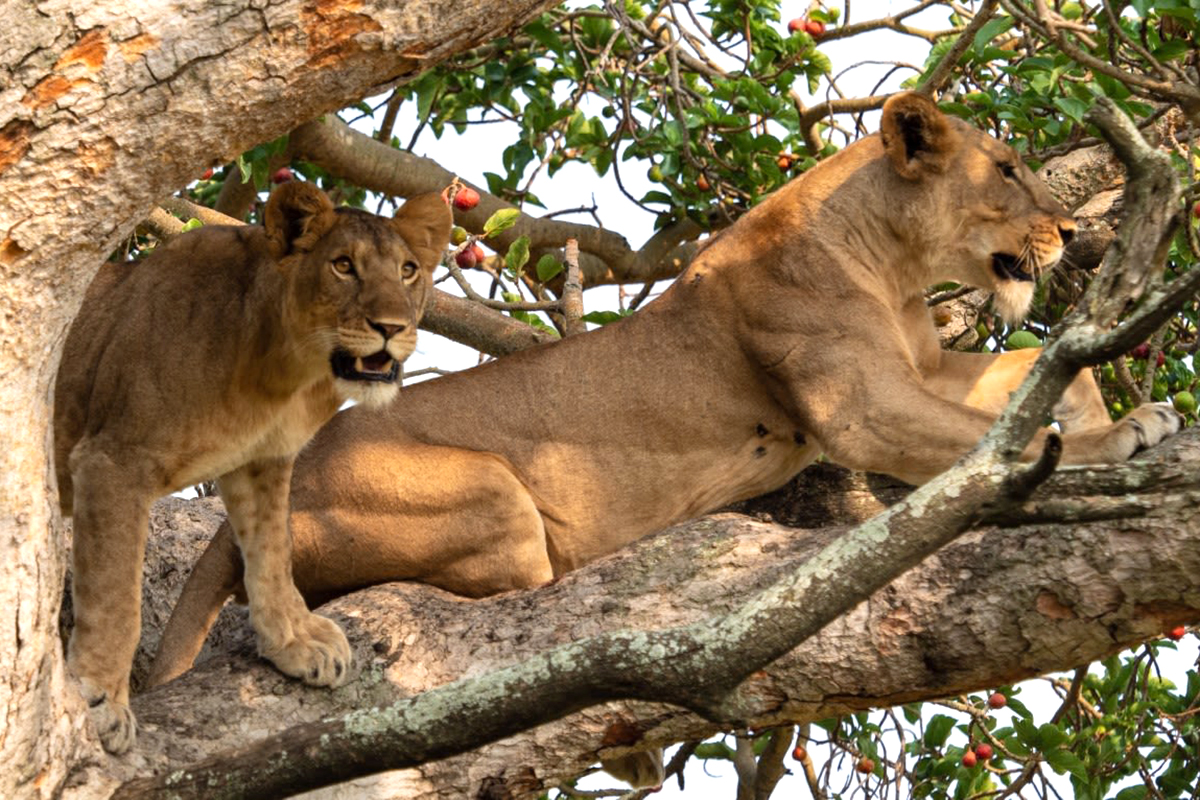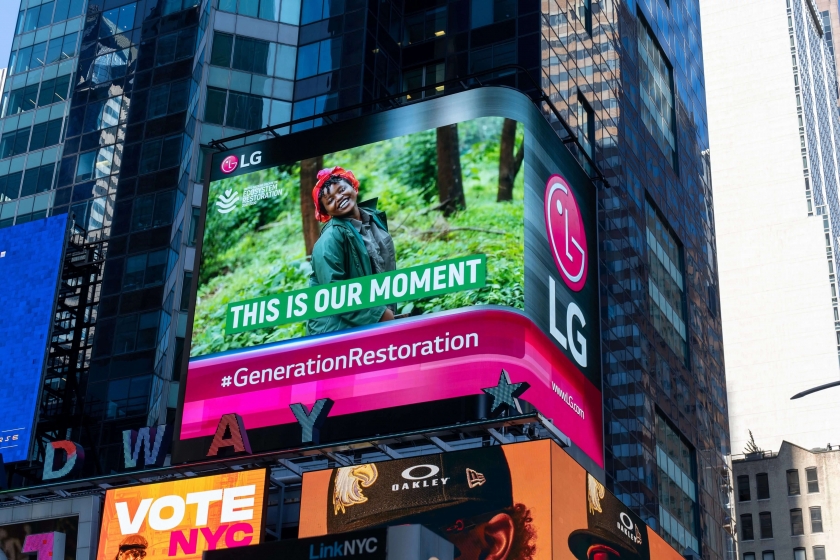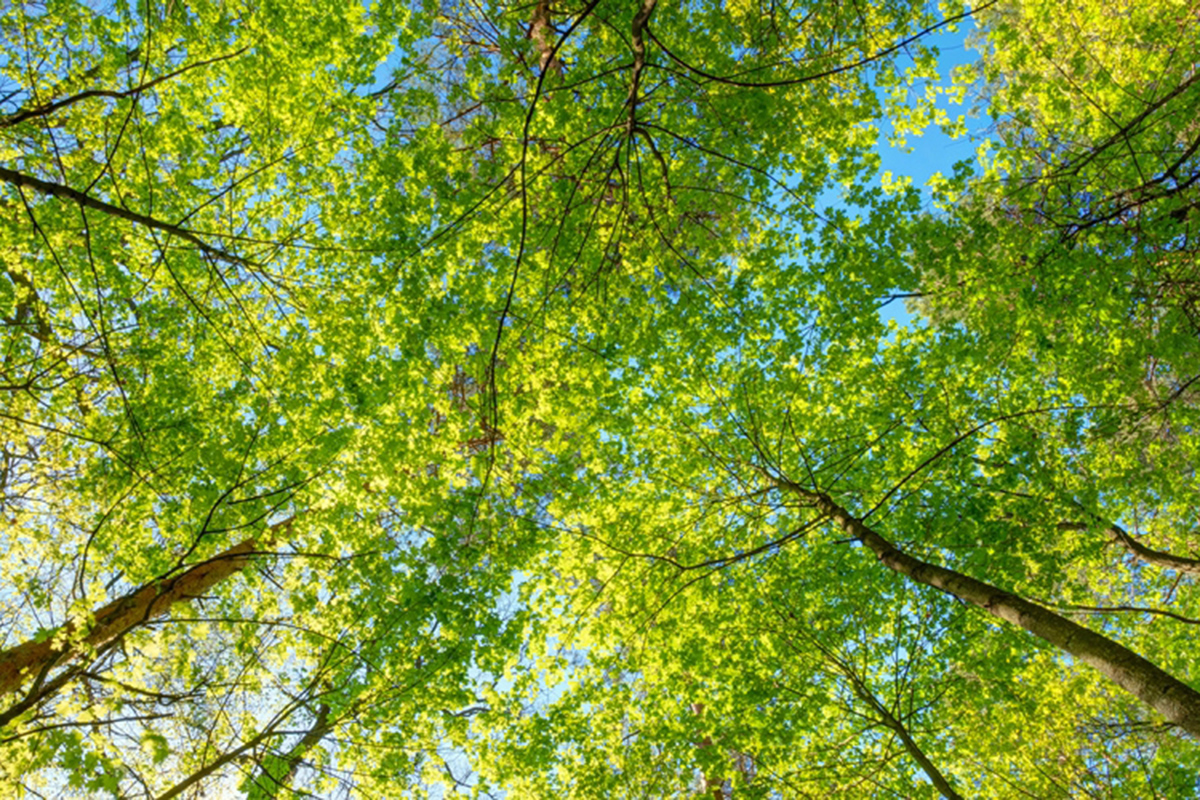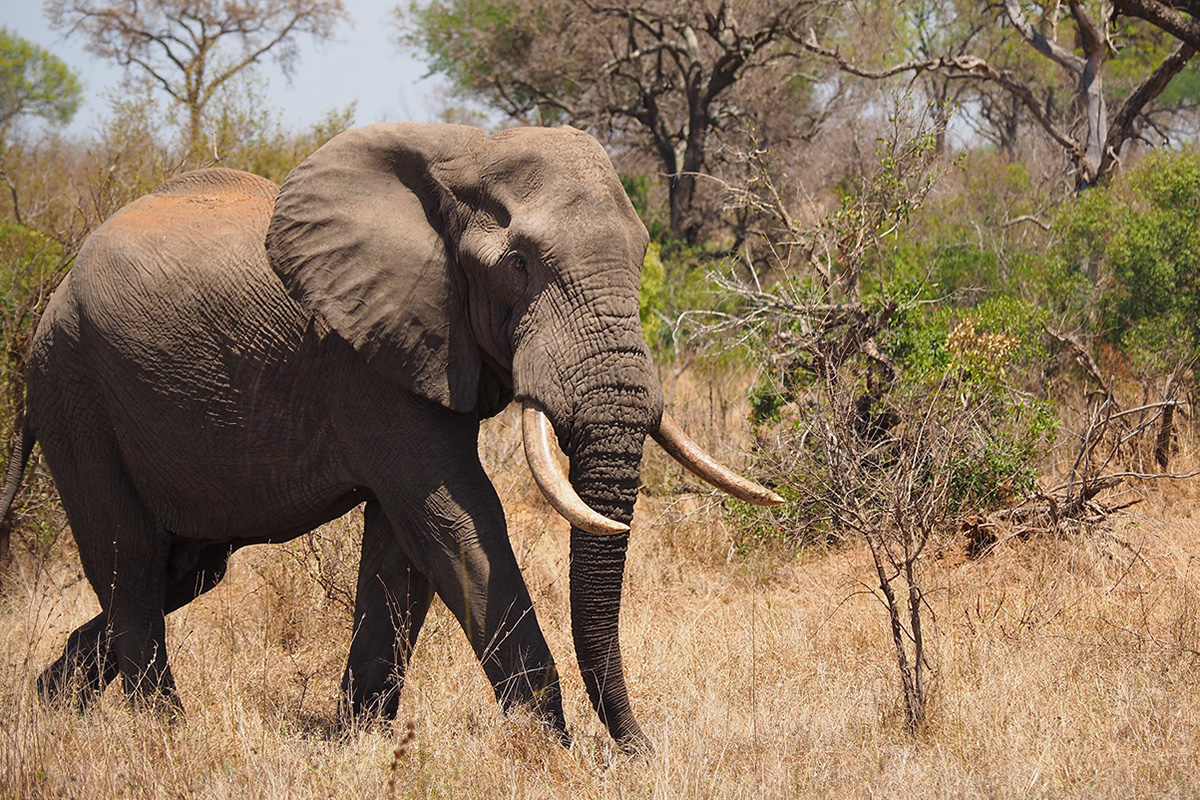Forests are essential for planetary health and human well-being. They provide people with goods, as well as help combat climate change and protect ecosystems. Even though deforestation is slowing, “each year we still degrade and destroy some 10 million hectares of forest”, reports UN Chief, António Guterres. For this year’s International Day of Forest (21 March), choose wood from legal and sustainable sources to help reduce deforestation while providing people with jobs and renewable materials. Join FAO’s event to know how forest-based innovations can contribute to a sustainable lifestyle.
Natural Resources and the Environment
In recognition of Covid-19’s world-altering effects, The Lion’s Share, and the Global Environment Facility’s Small Grants Programme (SGP), implemented by UNDP, made a call for proposals to support communities dependent on wildlife-based tourism. Grants and the projects they’ve facilitated, have been working to build resilience in communities in wildlife-rich areas and support the continued protection of threatened wildlife in their remaining strongholds despite pandemic hardships.
In this video, the Oscar-winning filmmaker Luc Jaquet shares with us his passion for nature conservation, his love for the frozen landscape of Antartica, and how his life changed when he started filming the emblematic Emperor penguins. Luc Jaquet shares this intimate testament in commemoration of the 50th anniversary of the UNESCO Man and the Biosphere Programme and reminds us of the importance of tightening and conserving the links that bind human beings to nature.
FAO monitors the global Desert Locust situation closely and provides early warnings and alerts on the timing, scale and location of invasions and breeding. This early warning is vital.
Encroachment upon forested lands is one of the main threats to natural forest in Pakistan. In realizing the need for practicing sustainable forest management, the SFM project was launched and implemented by the Pakistan Ministry of Climate Change. Working with multiple partners, UNDP supports efforts to sustain resilient forest ecosystems to benefit local economies, protect biodiversity and address climate change by providing technical assistance, policy advice, and governance support to developing countries.
2022 could prove to be a seminal year for the environment, with high-level events and conferences scheduled, which are hoped to re-energize international cooperation and collective action. UNEP is going into 2022 with a new “Medium-Term Strategy” featuring seven interlinked subprogrammes for action. Unsustainable patterns of consumption and production are fuelling the triple planetary crisis of climate change, nature and biodiversity loss, and pollution and waste. Several global events in 2022 aim to encourage dialogue and influence policy decisions to address the triple crisis.
The Champions of the Earth award is the United Nation’s highest environmental honour. It recognizes outstanding leaders from government, civil society and the private sector whose actions have a transformative impact on the environment. Champions of the Earth inspire, defend, mobilize and act to tackle the greatest environmental challenges of our time. Learn more about UNEP’s Champions of the Earth.
UNDP works with local communities in Indonesia’s Kalimantan forests to protect biodiversity and generate sustainable livelihoods. Recognising that naturally-dyed textiles are in high demand (and thus fetch higher prices) on international markets, weavers from the Ensaid Panjang village started a programme of forest rehabilitation and enrichment by planting and cultivating natural dye-producing plants. The KalFor project, which is supported by UNDP Indonesia and partners, bolsters the Government's program to preserve the remaining forests in Kalimantan that are outside state forest zones.
FAO and the Arbor Day Foundation started the Tree Cities of the World programme, a collaborative effort to encourage cities and towns around the globe to invest in, properly maintain and sustainably manage urban forests and trees. 2019 was the first year of eligibility for this worldwide initiative and 68 cities from 17 countries were recognised for their commitment to urban forestry. The programme has since almost doubled and now includes 120 cities from 23 countries.
Environmental protection is frequently presented as a choice between benefits for the natural world or for humans. But the Republic of Costa Rica is showing that symbiotic relationships between environmental protection and economic development are possible. And the world is taking notice. The Government of Costa Rica was honoured with the Earthshot Prize, a Nobel-like award founded by renowned British naturalist Sir David Attenborough. UNDP values the leadership of developing countries in finding solutions that work for people and for the planet.
The Montreal Protocol is one of the most successful universally ratified environmental treaties. Without which, it is estimated that the global ozone layer would have collapsed by the mid-21st century, with devastating environmental implications. Scientists estimate that the ozone hole is now expected to gradually close. But there is more to be done. The Kigali Amendment aims to phase-out so called HFC gasses. Compliance will avoid up to 0.4°C of global warming over this century. UNEP brings us a film by Yann Arthus-Bertrand, narrated by Sir David Attenborough, with aerial footage courtesy of Human / GoodPlanet Foundation.
Air pollution is a multifaceted problem – representing the world’s leading environmental risk to health, costing the globe an estimated $8.1 trillion in 2019. Air pollution is also deadly, causing or contributing to heart attacks, strokes, lung cancer, and respiratory diseases and killing an estimated seven million people every year. 95 percent of these deaths occur in low- and middle- income countries. As such, tackling air pollution is a component of the World Bank’s mission to eradicate poverty and promote shared prosperity. Less obvious is what can be done to address this problem.
Only 4.8 percent of Uruguay’s land is now covered by native forests. A group of local people have decided to reverse that trend and despite the winter’s cold, have gathered in a local park to start work. UNDP Uruguay’s Accelerator Lab, and partners have begun planting 1,000 trees to restore Punta del Diablo’s native forest.
Orangutans, meaning people of the forest, live in Indonesia and Malaysia. Their presence signals a healthy forest. When populations shrink, so do those of other animal and plant species. Orangutans are now critically endangered, and their population has declined by around 50% in the last 60 years, mainly due to loss of habitat. A tree cut is a home destroyed. When they come down to the ground, they are vulnerable to illegal trafficking. This World Orangutan Day (19 Aug) get to know how the UN works in their conservation. Join the Wild for Life campaign and watch them on the virtual tours!
Did you know that elephants germinate many plants that do not grow without passing through their digestive system? Elephants don’t only provide for ecosystems, they do so for economies too. They bring income and jobs to the tourism sector. Despite their contributions, elephants are poached in large numbers for their high-priced ivory. Visit the UN African Elephant Fund, to learn how the UN works to restore sustainable elephant populations. You can also go wild on a savanna journey. On #WorldElephantDay (12 August) join the Wild for Life campaign to help tackle the illegal trade in wildlife.

